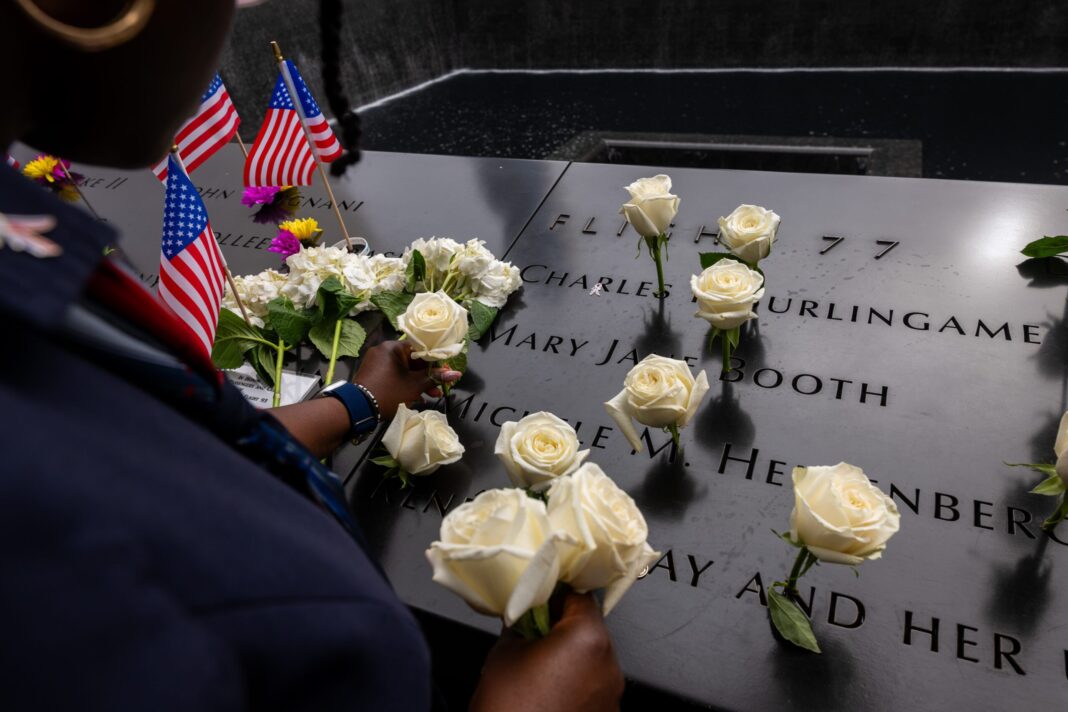Remembering 9/11: Commemorating the Lives Lost and Acts of Service
As Americans mark the 24th anniversary of the September 11, 2001, attacks, a wave of remembrance sweeps across the nation. This solemn day is filled with ceremonies, acts of volunteerism, and heartfelt tributes aimed at honoring the nearly 3,000 lives lost on that fateful day. From grand events in major cities to more intimate family gatherings, communities come together to pay their respects and reflect on the profound impact of that day.
Ceremonies Across the Nation
Commemorations will take place at significant sites: Ground Zero in New York City, the Pentagon in Virginia, and the field in Shanksville, Pennsylvania. At these locations, families of victims will gather alongside dignitaries and politicians to remember those who perished. In New York, a deeply moving ceremony will feature the reading of victims’ names by their loved ones, punctuated by moments of silence that coincide with the timeline of the tragedy—the moments when hijacked planes struck the Twin Towers and later fell.
In Virginia, the 184 individuals who lost their lives at the Pentagon will be honored as well, with the event attended by President Donald Trump and First Lady Melania Trump. Similarly, a ceremony in Shanksville will reflect on the heroism of the passengers of Flight 93, who fought back against their hijackers. These tributes serve as powerful reminders of courage and unity in the face of tragedy.
Community Spirit and Acts of Kindness
While large-scale events capture headlines, many choose to commemorate 9/11 through acts of service in their communities. James Lynch, who lost his father, Robert Lynch, in the World Trade Center attack, illustrates this spirit. The Lynch family has planned a ceremony near their New Jersey hometown, but they will also spend part of the day at the beach, finding joy amidst their grief. “Finding the joy in that grief, I think, has been a huge part of my growth with this,” he reflects.
Across the country, individuals and groups engage in meaningful volunteer work. From preparing meals for the needy to organizing blood drives, these acts of kindness reflect the resilience of the American spirit and represent a commitment to honoring those lost by giving back to the community.
Increased Security and Political Context
This year’s remembrances unfold against a backdrop of heightened political tensions and security concerns. The recent killing of conservative activist Charlie Kirk while speaking at a college in Utah has led to increased security measures around 9/11 events. Commemorations that are typically emblematic of national unity may now prompt a deeper reflection on the state of political discourse in the country.
At Ground Zero, Vice President JD Vance and his wife will attend the ceremony, which underscores the convergence of personal loss and national memory. As the names of victims are read aloud, the somber moments of silence invite all in attendance to reflect on the significance of solidarity in the face of calamity.
Lasting Impact of the Attacks
The attacks on September 11 have left indelible scars on the nation and triggered global repercussions. The assaults led to a shift in U.S. policy, resulting in the “Global War on Terrorism” and military actions in Afghanistan and Iraq. The repercussions of this tragic day continue to resonate in both diplomatic and domestic arenas.
The legal proceedings surrounding the mastermind of the attacks, Khalid Sheikh Mohammed, also remain unresolved. Though he was captured in 2003, a trial has yet to materialize, reflecting ongoing complexities in the U.S. legal response to terrorism.
Memorials and Health Concerns
At the National September 11 Memorial and Museum in New York, visitors are reminded of the lives lost through the two memorial pools that occupy the footprints of the Twin Towers. As the commemoration unfolds, there are ongoing discussions about the management and future of the memorial space, including proposals to designate it as a national monument.
Moreover, the aftermath of the attacks has led to significant federal efforts to care for first responders and others impacted by the toxic dust from the buildings’ collapse. Continuous monitoring programs remain in place to assist those who might face long-term health issues due to exposure to hazardous materials.
The anniversary of 9/11 serves as a poignant reminder of the resilience, unity, and compassion that characterize the American spirit, urging all to reflect, remember, and act with kindness in the face of adversity.



